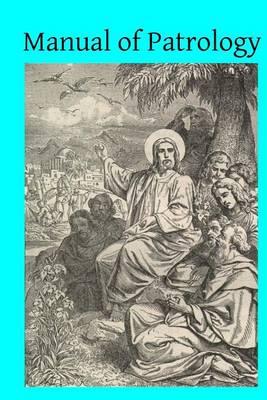Overview
This little book, by a German Benedictine Father, is intended as nothing more than an introduction to the knowledge of the Fathers of the Church. It might be called a handy-book to the great collection of writers whose works appear in the Cursus Patrologiae. No student has any chance of thoroughly mastering the whole of the three or four hundred volumes of Migne's edition. But, on the other hand, no one can pretend to a scientific knowledge of divinity, unless he has read the Fathers to some purpose. Students, therefore, whether those who are passing through their course in 11. seminary, or those who, in more mature years, are following up some portion of the Church's great doctrinal inheritance, will always find a use for a small and well arranged guide to the epochs, the authors, and the subjects of patristic literature. An acquaintance with the writings of the Fathers of the Church is useful to students of theology on many heads. First, to be tolerably well read in the Fathers is to know theology in its historical aspect. No man ever possesses a true knowledge of things that have grown, unless, to a certain extent, he can trace the process of their growth. To understand, in all its circumstances and surroundings, the development of anyone dogma, is a splendid training in scientific theology. To appreciate what it was in the past, and in the actual circumstances that made St. Augustine defend with such amplitude and determination his views of grace and predestination, which, nevertheless, as he said, had always been held by the Church of God; to see with your own eyes in the pages of Athanasius and Hilary, how the terminology of the doctrine of the Blessed Trinity becomes distinct and clear-cut; to feel the tremulous and indignant emphasis which Leo puts in his oft-repeated formula of the Word made flesh; to follow Cyril of Alexandria through the thicket of his earnest speech, and recognize at every turn the traces of an adyersary who is intent on denying to Jesus Christ bis eternity and his divinity - this kind of study is a very different thing from learning formularies by heart, or getting up patristic texts in compendiums. Moreover, it is from the study of the Fatbers that modern theology derives what I may call its elasticity. This is an age of manuals, abstracts, catechisms, and other apparatus for accomplishing the process which is known as cramming. Education conducted on principles of this kind can never become part of one's mental, and spiritual life. The knowledge thus gained lies in the receptive power like a stone on the surface of a field; whatever crop the field grows, the stone has no share in fertilizing it. The Fathers did not write abstracts. They searched the Scriptures, compared testimonies, examined traditions and expostulated with false teachings. Most of them launched out from time to time into literary exposition, into rhetoric, or into poetry. A modern catechism read without the light of patristic illustration is both inadequate and misleading. When faith is described as being to believe without doubting whatever God has revealed, the patristic student thinks of the long centuries, full of intellectual activity, during which that august word has been invoked, written about, defined, divided, lifted up, trampled upon and fought over - and he is the less likely to fancy that this definition tells him all about it. When he reads that God is the Supreme Spirit, Who exists of Himself, he will remember, if he has read Athanasius, Hilary, and John Damascene, how the Greek and Latin intellect have striven to put into philosophic language the revelation of God's Name, I am Who am. The formularies say with easy consciousness that man was made to God's image and likeness; the Fathers have discussed from a hundred points of view what this divine revelation means.
Full Product Details
Author: V J Schoebel DD ,
Brother Hermenegild Tosf ,
Bernard Schmid Osb
Publisher: Createspace Independent Publishing Platform
Imprint: Createspace Independent Publishing Platform
Dimensions:
Width: 15.20cm
, Height: 1.90cm
, Length: 22.90cm
Weight: 0.472kg
ISBN: 9781496185402
ISBN 10: 1496185404
Pages: 352
Publication Date: 08 March 2014
Audience:
General/trade
,
General
Format: Paperback
Publisher's Status: Active
Availability: Available To Order

We have confirmation that this item is in stock with the supplier. It will be ordered in for you and dispatched immediately.




